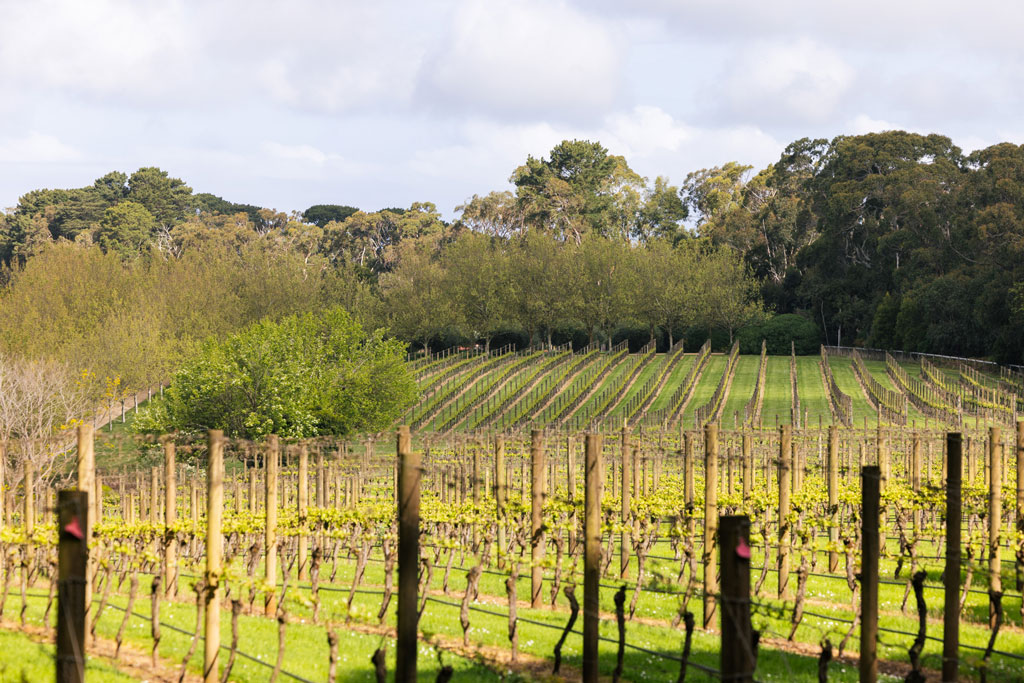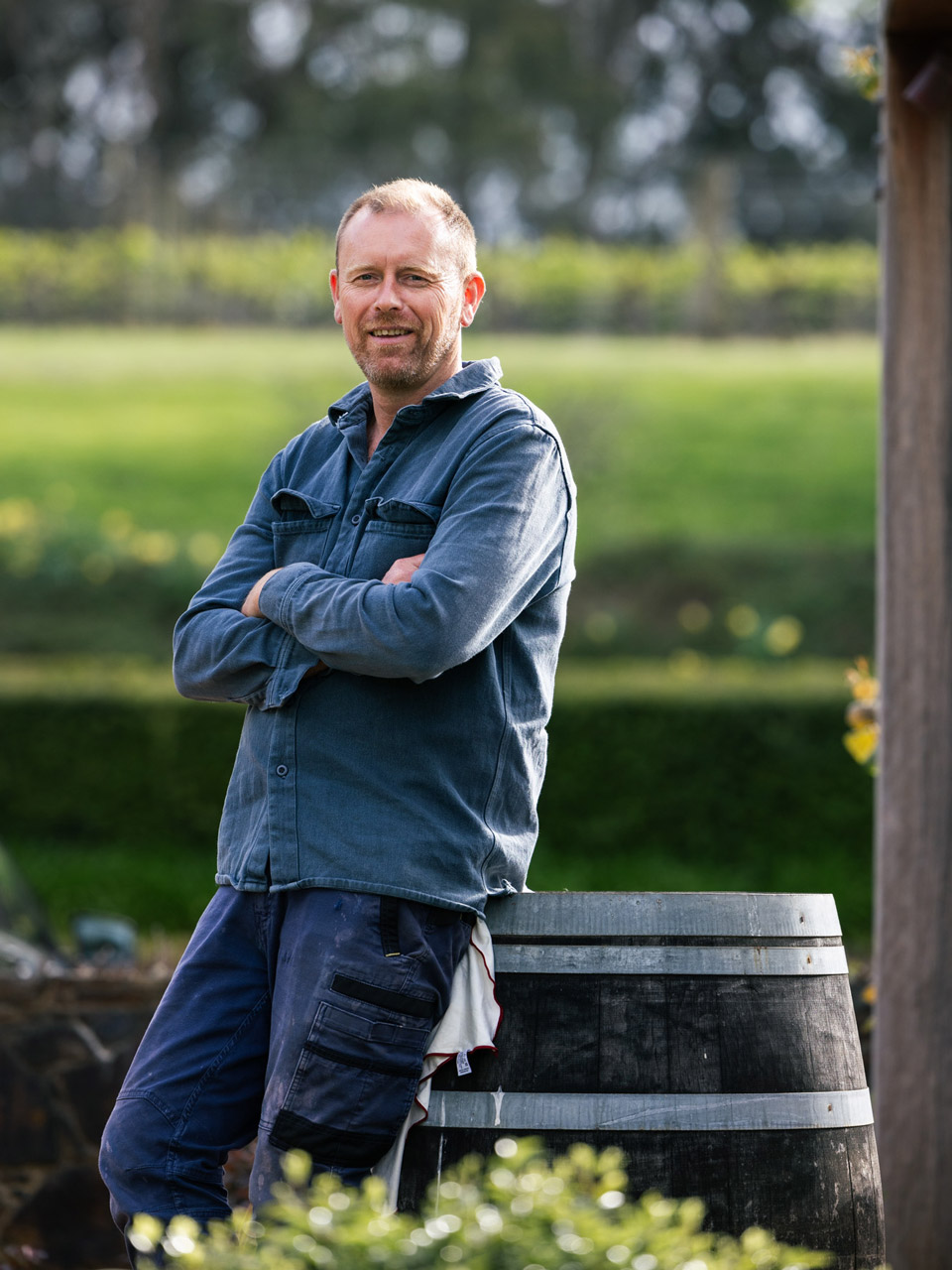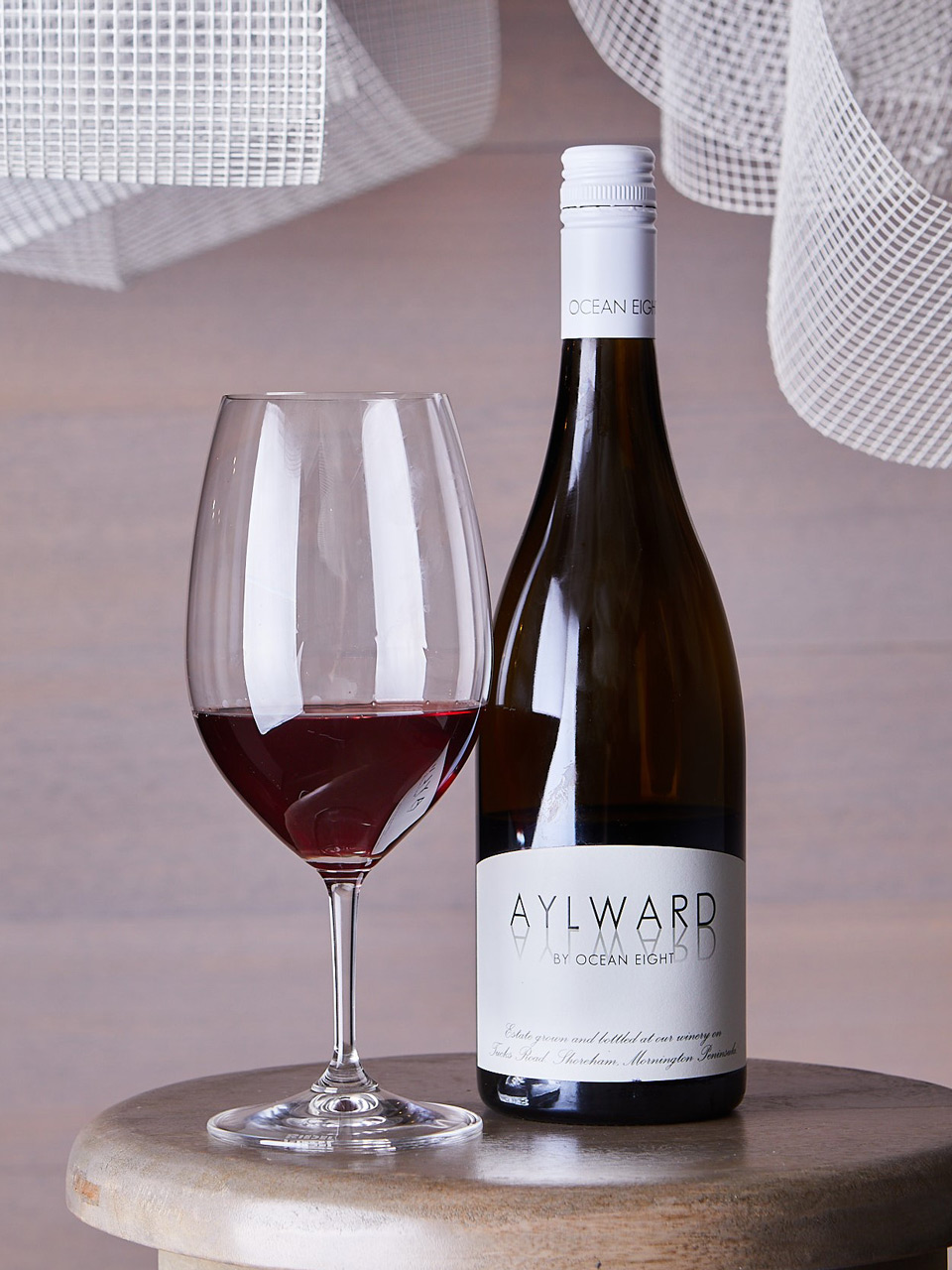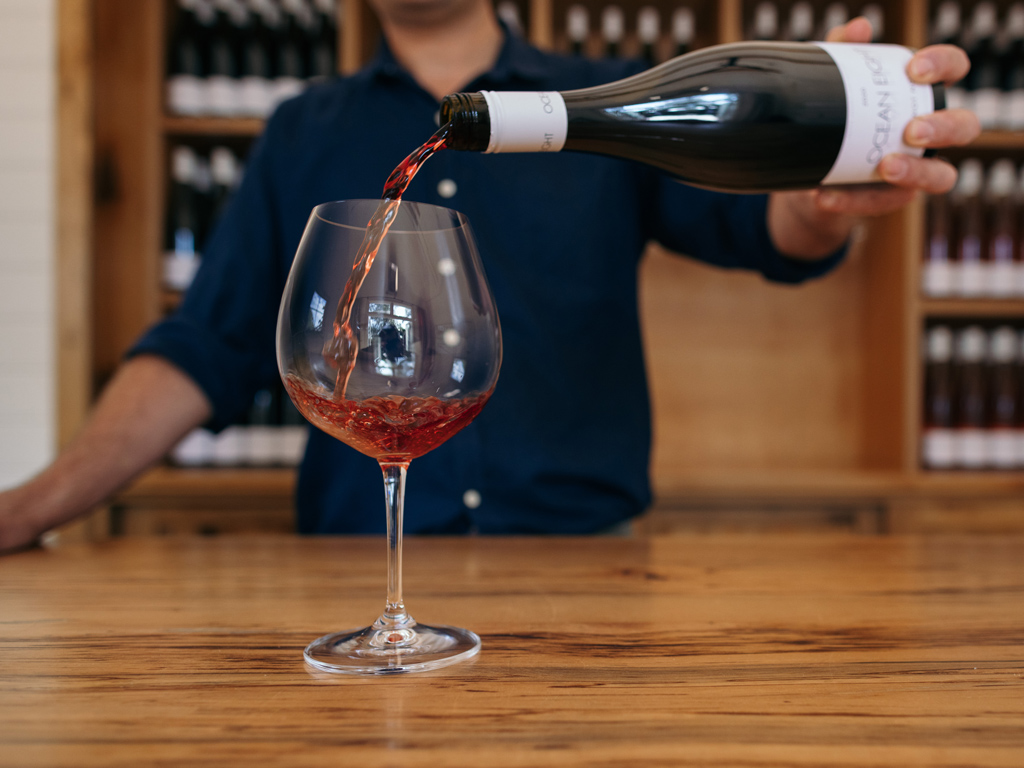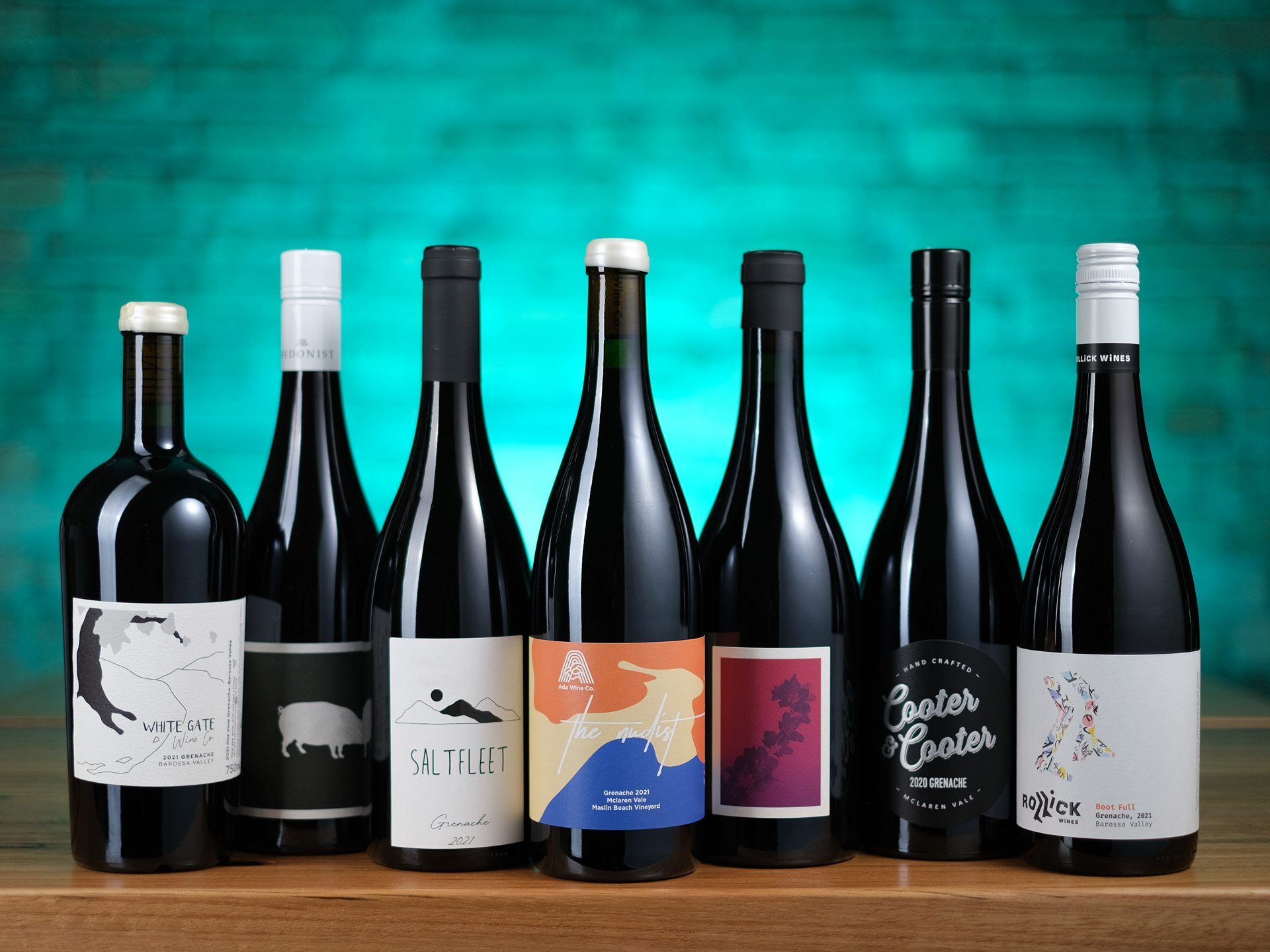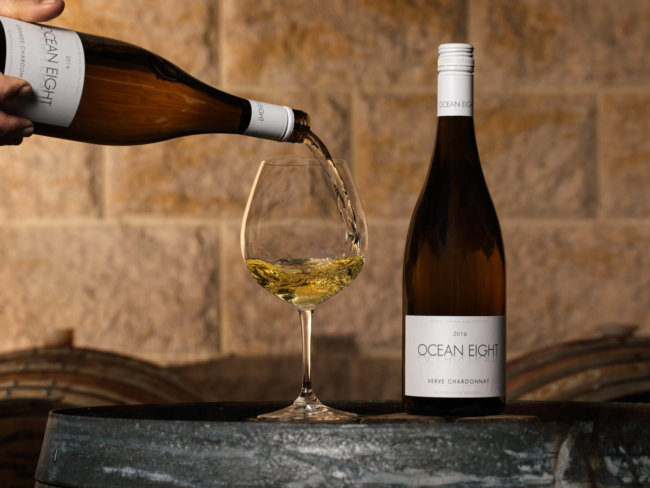12 December 2024. Words by Ibrahim Khudeira.
Few would disagree that pinot noir has become the Mornington Peninsula’s most emblematic variety. Over the past three decades, the Aylward family has been perfecting their craft of growing pinot noir across two vineyard sites in the region. Ibrahim Khudeira caught up with Mike Aylward of Ocean Eight to discuss this notoriously finicky grape and the artistry of making wines that capture a true sense of place.
Purity is the first word that my nose tells my brain as I plunge it into Mike Aylward’s 2022 pinot noirs.
As I switch back and forth between his Ocean Eight and Aylward pinot noirs, I hear the unbridled excitement in Mike’s voice as he talks about his peninsula plots – particularly those producing his pinots.
He begins by launching into a brief history of the region, outlining the relatively modern foray into winegrowing that took place from the 1970s as cherry and apple orchards slowly gave way to vineyards.
“It was discovered that you couldn’t get the thicker-skin grape varieties ripe enough here, but you could ripen pinot noir,” Mike explains. Following the region’s pinot noir pioneers of the 1980s, another wave of ‘prospecting’ ensued in an effort to find the best sites for pinot noir – “and that’s when my family came into the region” Mike reflects.
Mike’s family planted the first vines for the seminal Kooyong Estate in 1996 at Tuerong, where Mike honed his winemaking nous in his mid-twenties before the Gjergja family of Port Phillip Estate acquired it, allowing him to dive headlong into Ocean Eight.
It’s here Mike’s vision has flourished, particularly for his pinot noirs, but also for his pinot gris, pinot noir rosé and two chardonnays – a story for another time.
Any pinot noir lover knows the grape is fickle, even petulant. It only likes particular sites and is sensitive to frost, wind and infections on account of its thin skin. “Every block’s different,” Mike says of his own experience with the grape.
The comparisons to Burgundy in France – the apogee of pinot noir – are inevitable, but as Mike’s friend and fellow winemaker Adam Foster once told me: “Chardonnay is a wine of making, pinot noir is a wine of place.”
Mike agrees: “There’s no point in trying to be Burgundy. We’ve got to stand on our own two feet and say Mornington does this really well, and our site does that really well.”
It’s this attitude toward specificity of region and site that has sensitised Mike’s radar to what he can produce. For him, the cornerstone of quality is the flavour concentration achieved by yield management.
“We crop lower: if it’s coming in at thirty bunches, we’ll drop it to twenty for the pinot and ten to twelve for the reserve.” This resolute focus on quality prevails even during challenging years when they have lost half their grapes due to “terrible fruit set”, despite “amazing ripening”.
“All the costs stay the same, but you’re getting half the fruit, so that makes the production very, very expensive,” Mike laments.
Curiously, Mornington Peninsula has only seen an increase of 0.9 degrees celsius in the mean January temperature since 1961 – though it has also seen its annual rainfall decrease by more than 200 millimetres during that time.
I ask Mike if there are other red varieties in contention for the peninsula. “Pinot noir just shows the vintage,” he replies with the considerable reverence of any self-respecting winemaker who doesn’t see themselves as a manufacturer of consistency, but rather as a conduit of time and place. “The fruit is so nervous,” he laughs, each vintage leading him to wonder: “Is it too fruity, is it too savoury?”
I see that nervousness on opening both pinot noir cuvées. They are timid, asking rather than propositioning. But what is unmistakable is that purity.
A purity born of pursuit of place, with unwavering dedication to quality above all else.
2022 Ocean Eight Pinot Noir, $60 RRP
Bright ruby moving to translucence at the edges. Sap and spice on the nose. A cannoli of fresh cherry cream wrapped in firm earth. Zestier with air. Peekaboo of Campari with tonic lift. At once buoyant and viscous in the mouth, with pillowy tannin providing chew. Redcurrant acidity vibrates front to back, duck-diving at the draw with finesse and persistence. A joyous, inviting pinot ready to drink now, though requiring a half hour to properly unfurl.
2022 Aylward by Ocean Eight Reserve Pinot Noir, $98 RRP
Darker in disposition, optically and aromatically. Burgundy in robe with a deeper frame. Camphor, richer though more subdued spice and darker fruit are shy in the glass – receding where the former effuses. Stiffer, less giving. The density and disinterest of young Pommard –tempting yet forbidding. Taut and coiled in the mouth. Slumber is an ally here; time will cajole.
Ocean Eight are a supporter of the Wineslinger Awards.
Ibrahim Khudeira is the National Sales Manager for Foreign Fruits, an importer and distributor of European wines, and has been with the DITC Group since 2020. He entered the wine industry through hospitality, quickly becoming the venue manager at The Alps Wine Shop & Bar in Prahan. Before helping establish Foreign Fruits, Ibrahim managed and sourced wines for DITC’s online retail business, Diggin’ in the Cellars. His passion for wine has also led him to participate in two recent vintages at Syrahmi in Heathcote.

